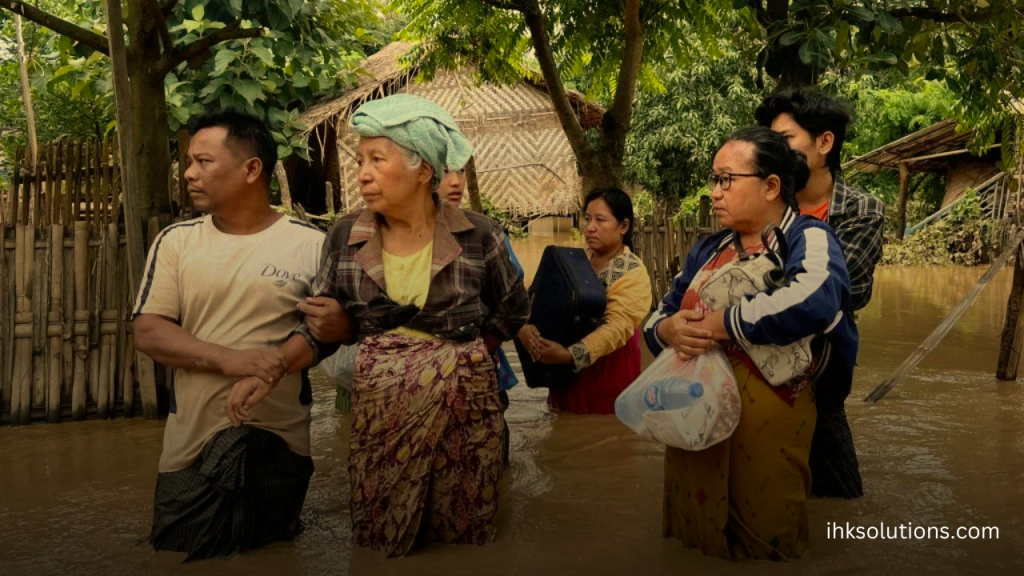Myanmar Struggles as Deadly Floods Wreak Havoc After Typhoon Yagi

Myanmar Struggles as Deadly Floods Wreak Havoc After Typhoon Yagi
Severe floods have struck Myanmar following Typhoon Yagi, forcing over 230,000 people to flee their homes, according to officials. State media reported that the country’s ruling military council has requested foreign aid to help mitigate the effects of the typhoon. The capital, Naypyidaw, is among the hardest-hit areas.
The country’s armed forces say that the floods have killed at least 33 people. The state-run daily, *The New Light of Myanmar*, reported that some temporary relief camps have been set up for those who have been left homeless.
Typhoon Yagi, the strongest storm in Asia this year, also swept through Vietnam, China’s Hainan Island, and the Philippines.
State media reported that General Min Aung Hlaing, head of the military council, along with other Burmese officials, visited the heavily flooded areas to oversee rescue and relief efforts.
However, reports from Radio Free Asia suggest that the death toll is much higher, with the U.S.-backed station claiming that at least 160 people have died in the floods and landslides.
A rescue worker in Taungoo told BBC Burmese on Saturday that more than 300 people were trapped by the floods on the eastern bank of the Sittoung River.
The rescue worker said, “There aren’t enough boats to save us.”
Scientists say that typhoons and storms are becoming stronger and more frequent due to climate change. Warmer ocean waters give storms more energy, leading to higher wind speeds.
A warmer atmosphere also holds more moisture, which can result in heavier rainfall.
A large portion of Myanmar’s population has already been displaced by a three-year civil war that has killed thousands and displaced more than 2.6 million people, according to the United Nations.
The UN Office for the Coordination of Humanitarian Affairs (OCHA) estimates that around 18.6 million people in Myanmar are now in need of humanitarian assistance.
In a recent update on the ongoing humanitarian crisis, the International Committee of the Red Cross (ICRC) stated that many families in Myanmar have limited access to clean water and sanitation and are struggling with shortages of essential medicines and healthcare. “They live in fear of armed conflict and violence,” said ICRC President Mirjana Spoljaric on Wednesday. “The disruption of livelihoods is leaving countless people without the means to support themselves.”




